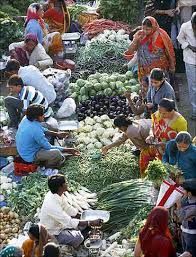In terms of the December inflation numbers, the wholesale price of petrol was almost 12 per cent below its level a year ago, while that of diesel was about six per cent below.
 The inflation numbers for December were expected by many observers to show something of a bounce.
The inflation numbers for December were expected by many observers to show something of a bounce.
The November numbers had consumer inflation at well below five per cent and wholesale inflation at zero.
As things turned out, the expectations were fulfilled, but barely.
The Consumer Price Index numbers, published on Monday, showed inflation to be precisely five per cent year on year.
The Wholesale Price Index numbers, released on Wednesday, estimated it to be 0.1 per cent year-on-year.
If the pattern over the last three months is going to continue, the likelihood is that both indices will register inflation rates close to current levels over the next few months.
The question is: will the pattern be sustained?
The two most significant contributors to this dramatic softening of inflation are energy and food prices.
On the energy front, crude oil prices are now hovering below $50 a barrel, less than half their levels a mere six months ago.
A combination of factors has contributed to this development, which have been widely analysed, including on these pages.
The broad consensus that appears to have emerged, of course, with the caveat that ‘anything can happen’, is that prices are unlikely to rise very much from current levels, if at all.
In terms of the December inflation numbers, the wholesale price of petrol was almost 12 per cent below its level a year ago, while that of diesel was about six per cent below.
If the global price does indeed remain at current levels, the combined direct and indirect effects of this magnitude of decline will certainly keep the headline rate of inflation very low.
On the food front, two factors have contributed significantly to the very significant moderation.
One, the rate of increase in rice prices has been modest over the past six months, compared to an average of about 17 per cent in the preceding two years.
This is largely attributable to the open market sales done by the Food Corporation of India from its very large stocks.
Two, vegetable prices, which were a big driver until a few months ago, have declined, or at worst, stayed put.
At the wholesale level, vegetable prices increased by over 50 per cent during December 2013; last month, they declined by about five per cent.
At the consumer level, they have remained virtually flat from December 2013 to December 2014.
In contrast to oil, the persistence of these favourable patterns is difficult to predict; in the absence of significant structural reforms in agriculture, the risks of sharp spurts are always present.
However, in the otherwise benign inflationary scenario, the probable impact of such developments on headline inflation will be relatively small.
These are the last inflation numbers that the Reserve Bank of India will have before its next policy review on February 3.
Over the past few months, it has maintained the status quo on rates amidst a growing clamour for a reduction.
Given the very soft bounce in the December numbers, a risk that recent policy reviews had underscored, inflation projections for the rest of the year, as well as the year ahead, will generally be revised downwards.
If the Reserve Bank of India also does the same in its review process, then it will have less justification for maintaining the status quo.













 © 2025
© 2025